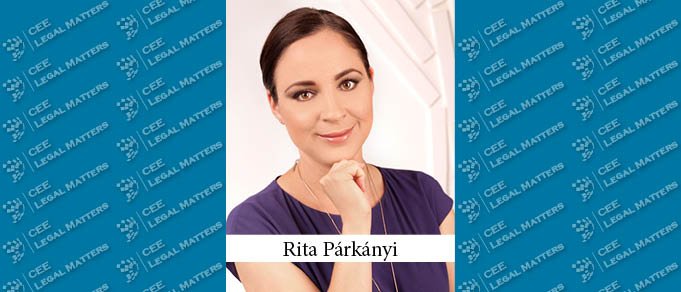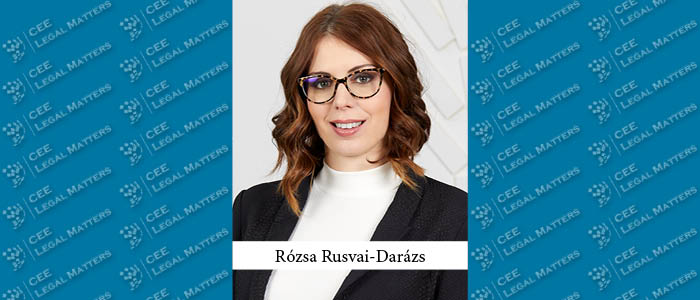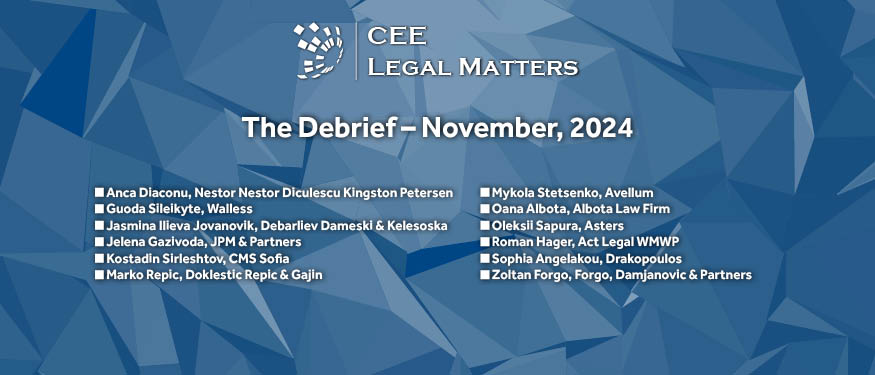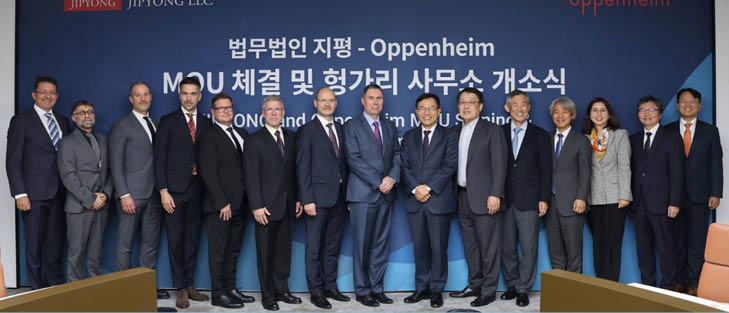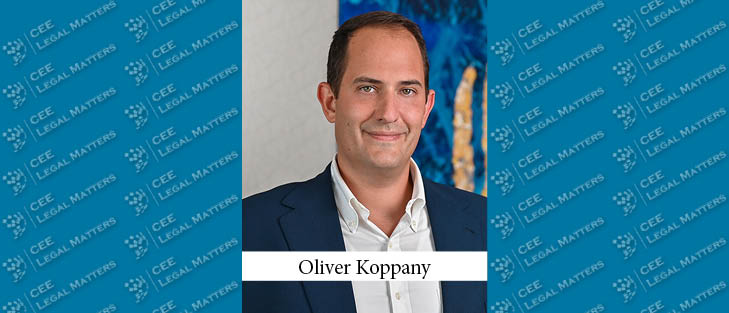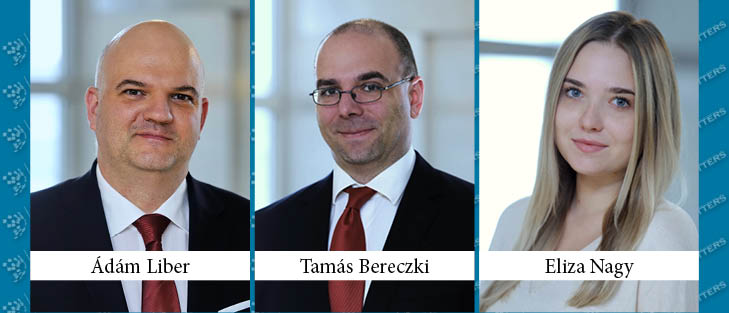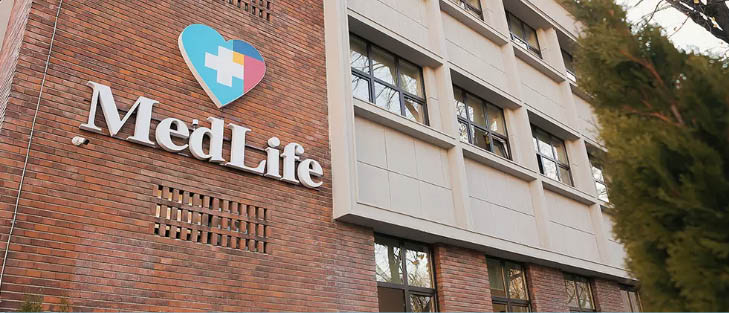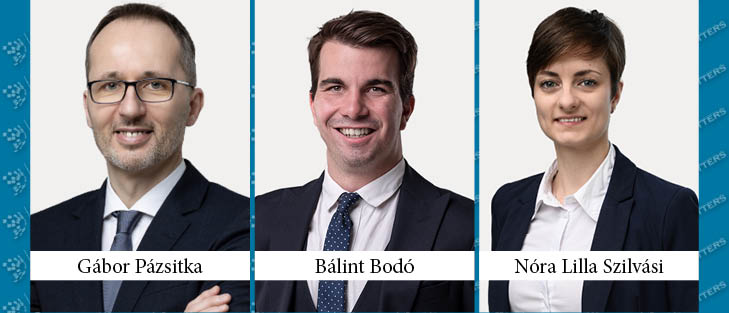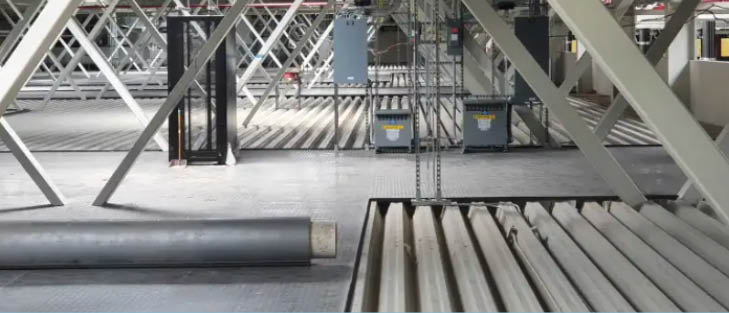In a bid to enhance legal competitiveness, a new legislative proposal aims to streamline regulations in environmental protection, waste management, consumer rights and workplace safety, boosting the competitiveness of domestic businesses. The proposal is currently under public consultation, but it already highlights several key changes that may be of interest to various sectors.
Schoenherr and Molnar and Bereczky Advise on Situlus Holding's Sale of Industrial Site in Hungary
Schoenherr has advised Seidel Hungaria Ingatlankezelo on its sale of an industrial asset located in Ajka, Hungary to Muszertechnika Holding. Molnar and Bereczky advised Muszertechnika Holding.
The Maximum Fine that the Competition Authority Can Impose Has Increased
From 1 August 2024, the maximum fine that can be imposed by the Hungarian Competition Authority equals 15% of the undertaking’s net turnover. According to the Authority’s statement, its primary objective is not to impose fines, however, the increase in the potential financial penalty is a strong deterrent. In any case, it can be observed that the Authority is becoming more and more stringent concerning fines: while in 2023 it imposed fines totalling HUF 2.2 billion, the total amount of fines imposed this year exceeded HUF 2 billion by August.
Green Investments and Energy Efficiency Improvements Expected in the Autumn
A new draft regulation was put to public consultation until 27 September 2024 that could bring significant changes to the operation of district heating systems in Hungary. The aim of the regulation is to increase the use of renewable energy sources such as geothermal and biomass in district heating, thus reducing dependence on natural gas and costs.
The Debrief: November, 2024
In The Debrief, our Practice Leaders across CEE share updates on recent and upcoming legislation, consider the impact of recent court decisions, showcase landmark projects, and keep our readers apprised of the latest developments impacting their respective practice areas.
Oppenheim Partners with Jipyong and Opens Korea Desk
Oppenheim has partnered up with the Korean law firm Jipyong by signing a memorandum of understanding, leading to Jipyong opening a Korea Desk in Hungary.
Employment Rules for Guest Workers May Be Tightened in Hungary
According to the latest data from the Hungarian Central Statistical Office, nearly 100,000 foreign nationals were employed in Hungary as of July 2024, with almost 80% coming from third countries. After years of government-led anti-immigration messaging, many Hungarians have expressed fear and outrage at the sight of large groups of Indian, Filipino, and Vietnamese workers in smaller towns, perceiving them as competition for job opportunities.
Hungarian Government Forbids Solar Panels on Balconies and Agricultural Lands
On 1 October 2024, the Hungarian Government published a decree on the basic regulations of settlement planning and construction requirements, which fundamentally rewrites and clarifies the frameworks for construction and property planning in many areas. Among these, one regulates the placement of solar panels and solar collectors, while another sets out the general framework for the installation of wind turbines.
Bittera Kohlrusz & Toth Managing Partner Csaba Bittera Joins Fraport as Senior Legal Advisor
Bittera Kohlrusz & Toth former Managing Partner Csaba Bittera has joined Fraport as its Senior Legal Advisor.
A New Era in Hungary's District Heating Sector: Higher Profit Limits and a Focus on Geothermal Energy
The Government of Hungary has overhauled the regulatory framework governing the district heating sector. The legislative changes are primarily aimed at supporting substantial new investments in district heating production by increasing the profit limits for new installations utilising renewable and geothermal energy.
Harris or Trump – Whether We Like It or Not, This Will Have an Impact on Us
I am not a political expert, but I grew up in Hungary and the United States and have always focused on both countries' policies and political climates. These opinions are based on what I have seen over the past ten-plus years of living between our countries and the policies we have seen from Harris and Trump (either spoken or acted). Both candidates have notable implications for Hungary's relationship with the United States. It could impact NATO dynamics, visa policies, and economic agreements. Each candidate offers distinct approaches that could affect Hungary’s foreign policy and its alignment within Europe.
Several New Government Decrees in the Subject of Architecture from 1 October 2024
Several provisions of the new Act on Hungarian Architecture ("Architecture Act") entered into force on 1 October 2024, as a result of which the previous Building Act was repealed. The Architecture Act has taken over and supplemented many of the provisions of the previous Building Act, however, also contains a number of new rules.
Artificial Intelligence Systems and the GDPR from a Data Protection Perspective
The General Secretariat of the Belgian data protection authority has published an informational booklet outlining the relationship between the EU General Data Protection Regulation and the Artificial Intelligence Regulation, which came into force on 1 August 2024. The authority’s aim with the informational booklet is to provide insights into the application of data protection requirements during the development and deployment of artificial intelligence systems. Data protection requirements and legal standards are key to ensure that artificial intelligence systems operate ethically, responsibly and lawfully.
Oppenheim Advises MedLife Group on Acquisition of VP-Med Health Centre
Oppenheim has advised Romania's MedLife Group affiliate Genesys Medical Clinic on the acquisition of Budapest-based VP-Med Health Centre from Attila Szabo and Olga Szegvari.
Closing: E&'s Acquisition of PPF Telecom Bulgarian, Hungarian, Serbian, and Slovakian Assets Now Closed
On October 25, 2024, White & Case has announced that E&'s acquisition of PPF Telecom Bulgarian, Hungarian, Serbian, and Slovakian assets (as reported by CEE Legal Matters on August 9, 2023) has now closed.
CMS and Hogan Lovells Advise on Werfen's Acquisition of Omixon Biocomputing
CMS has advised Werfen on its approximately USD 25 million acquisition of Omixon Biocomputing. Hogan Lovells advised Omixon.
The National Bank of Hungary's New ESG guideline: A Brief Overview
The National Bank of Hungary (NBH) introduced a new guideline No. NBH's 9/2024, also known as the ESG (Environmental, Social and Governance) Guideline. This initiative aims to help financial institutions incorporate sustainability considerations into their risk management processes. The Guideline seeks to standardise the collection and assessment of ESG information, thereby enhancing predictability in legal compliance and reducing administrative burdens for businesses applying for credit.
Wolf Theiss Advises XPartners on Acquisition of Aqvila
Wolf Theiss has advised XPartners Samhallsbyggnad on its acquisition of Aqvila and its Hungarian subsidiary Aqvila Consult Hungary.



